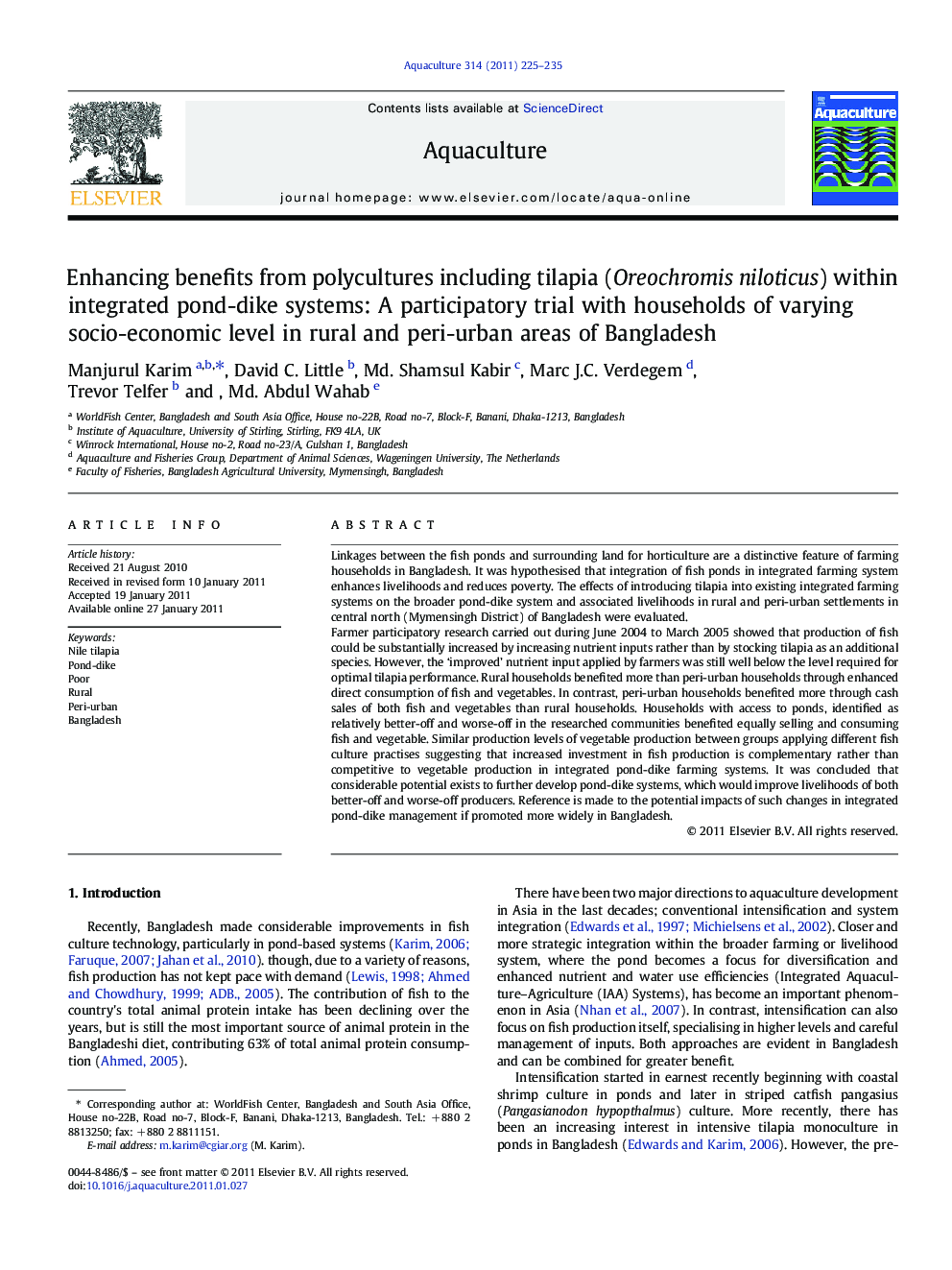| Article ID | Journal | Published Year | Pages | File Type |
|---|---|---|---|---|
| 2423126 | Aquaculture | 2011 | 11 Pages |
Linkages between the fish ponds and surrounding land for horticulture are a distinctive feature of farming households in Bangladesh. It was hypothesised that integration of fish ponds in integrated farming system enhances livelihoods and reduces poverty. The effects of introducing tilapia into existing integrated farming systems on the broader pond-dike system and associated livelihoods in rural and peri-urban settlements in central north (Mymensingh District) of Bangladesh were evaluated.Farmer participatory research carried out during June 2004 to March 2005 showed that production of fish could be substantially increased by increasing nutrient inputs rather than by stocking tilapia as an additional species. However, the ‘improved’ nutrient input applied by farmers was still well below the level required for optimal tilapia performance. Rural households benefited more than peri-urban households through enhanced direct consumption of fish and vegetables. In contrast, peri-urban households benefited more through cash sales of both fish and vegetables than rural households. Households with access to ponds, identified as relatively better-off and worse-off in the researched communities benefited equally selling and consuming fish and vegetable. Similar production levels of vegetable production between groups applying different fish culture practises suggesting that increased investment in fish production is complementary rather than competitive to vegetable production in integrated pond-dike farming systems. It was concluded that considerable potential exists to further develop pond-dike systems, which would improve livelihoods of both better-off and worse-off producers. Reference is made to the potential impacts of such changes in integrated pond-dike management if promoted more widely in Bangladesh.
